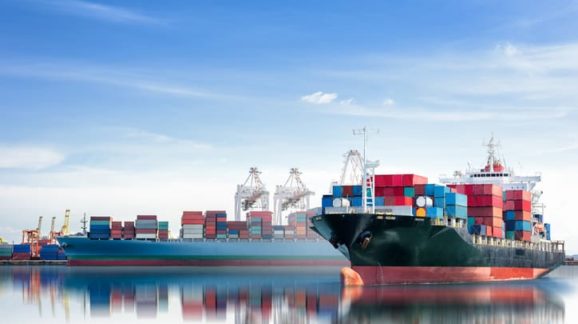Trade News: WTO Rules China Tariffs Violate Rules, Aluminum Tariffs Dropped, No Trade Deal with EU

Photo Credit: Getty
Usually policy-related news slows down near elections; nobody wants to rock the boat. This has not been the case with trade policy. Three important stories have emerged in the last day or so.
First, the World Trade Organization (WTO) ruled that President Trump’s China tariffs violate the WTO’s Most-Favored Nation (MFN) rules. Those rules state that all countries with MFN status cannot be charged different tariff rates for the same goods. They must all be charged the same rate—and that rate has to be the lowest a country charges any country for a given good.
China has MFN status. So, under WTO rules, the U.S. cannot charge China higher tariffs than it does other countries for MFN-eligible goods. This is exactly what Trump has done with hundreds of billions of dollars’ worth of Chinese goods.
While this is a big headline, it likely means little in terms of policy changes. China retaliated in kind, and roughly in proportion to Trump’s increase, so the WTO will likely consider the matter settled, and thus will not endorse further action against the United States. And as my colleague Iain Murray has pointed out, Trump, ironically, is unable to appeal the decision because he has essentially dismantled the WTO’s dispute resolution system.
It is ultimately up to Congress to right President Trump’s wrongs on trade policy. And the administration needs to get through its head that tariffs are not going to convince Beijing to enact needed reforms on economic policy, human rights, and political repression. The data are in, and the tariff approach does not work. A better approach will use consistent, long-term multilateral diplomatic pressure.
In the short term, the China tariffs should be rescinded anyway, regardless of what the WTO says. Taxing needed goods is terrible policy during a pandemic and a recession.
Second, President Trump had announced in August that he would reinstate national security tariffs against Canadian aluminum—about a month after the United States-Mexico-Canada Agreement (USMCA) came into effect. Canada announced it would retaliate, as countries nearly always do when tariffs are raised against them. On Tuesday, Canadian officials were set to announce what the retaliations would be. Hours before the press conference was to begin, the U.S. announced it would drop the tariffs.
This is more damage control than an actual positive policy change—tariffs are not going down, they are merely not going up. But backing off represents at least a tacit admission that more tariffs will not help the economy during a pandemic and a recession. Even if tariffs would help the aluminum industry itself, which is a questionable assumption, higher prices would hurt aluminum-using industries ranging from autos to beer to construction, as well as consumers.
Third, the European Union apparently will not negotiate a trade deal with the U.S. anytime soon—even if Biden wins the 2020 election. At a conference, EU trade official Sabine Weyand said Europe would rather work with the U.S. on shared problems, such as China policy, in the WTO, where they can also build coalitions with other allies. Europe would also rather settle other issues in piecemeal fashion, such as the ongoing dispute over Airbus and Boeing subsidies, and various Trump tariffs.
An EU trade agreement is one of the “big three” that were expected to completed in the next few years, along with China and the Brexited UK. President Trump has been mulling further tariffs against European goods for some time. Hopefully this news does not spur him to raise tariffs in hopes of forcing the EU to the negotiating table. If the USMCA is any precedent, such an agreement would be filled with trade-unrelated provisions for labor, environment, regulation, intellectual property, and whatever else rent-seekers can cook up. It would also, as with the USMCA, likely do more to manage trade than to free it.
Since Democratic candidate Joe Biden’s trade protectionism is uncomfortably similar to Trump’s, it is just as well that there will likely be no U.S.-EU trade agreement anytime soon. This will give both sides time to fully digest the lessons of the Trump administration’s failed protectionist experiment, and to pursue smaller policies such as regulatory mutual recognition, and at least some lowering of tariffs and other trade barriers.